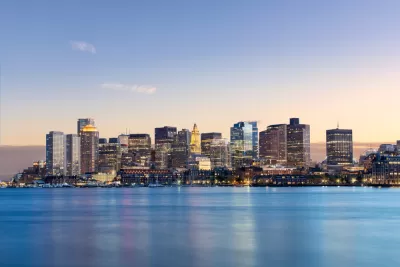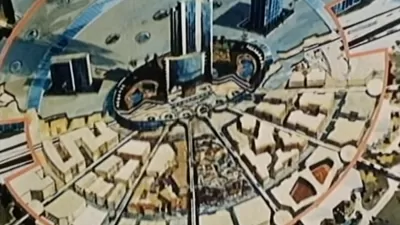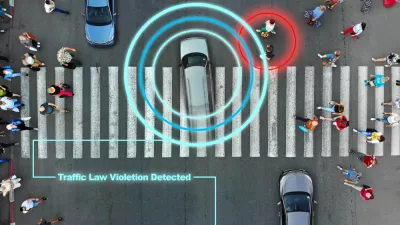After some notable disappointments in the development of 'smart city' projects, experts are increasingly critical of the movement to use tech to solve urban problems.

In a piece on Treehugger, Lloyd Alter outlines some of the criticisms of the 'smart city' concept, reminding readers that, despite the promises made by "smart garbage bins" or "smart parking systems," "almost every smart solution listed here is fixing a problem that could be solved in a simpler, low-tech way instead of adding a layer of complexity and 'smart.'" Planetizen previously covered Shannon Mattern's book A City Is Not a Computer, which describes the ways that the mentality prevalent among 'smart city' proponents clashes with the realities and unpredictabilities of real cities.
For Alter, the key is getting "back to basics" when it comes to urban planning and sustainability, quoting Shoshana Saxe: "Rather than chasing the newest shiny smart-city technology, we should redirect some of that energy toward building excellent dumb cities—cities planned and built with best-in-class, durable approaches to infrastructure and the public realm."
Alter quotes multiple experts who similarly question the value of introducing too much technology in lieu of simpler, low-tech solutions that already exist—if we have the political will to implement them. According to architect Michael Eliason, "we have had decades of politicians ignoring the data on climate change—prioritizing gizmos instead of sustainable mobility, socially and economically diverse ecodistricts, and car-free spaces. If we are to seriously tackle adapting to climate change, it is these types of things we will need to prioritize."
FULL STORY: Enough With 'Smart Cities'—We Need Cities Done Right

Planetizen Federal Action Tracker
A weekly monitor of how Trump’s orders and actions are impacting planners and planning in America.

Congressman Proposes Bill to Rename DC Metro “Trump Train”
The Make Autorail Great Again Act would withhold federal funding to the system until the Washington Metropolitan Area Transit Authority (WMATA), rebrands as the Washington Metropolitan Authority for Greater Access (WMAGA).

The Simple Legislative Tool Transforming Vacant Downtowns
In California, Michigan and Georgia, an easy win is bringing dollars — and delight — back to city centers.

The States Losing Rural Delivery Rooms at an Alarming Pace
In some states, as few as 9% of rural hospitals still deliver babies. As a result, rising pre-term births, no adequate pre-term care and "harrowing" close calls are a growing reality.

The Small South Asian Republic Going all in on EVs
Thanks to one simple policy change less than five years ago, 65% of new cars in this Himalayan country are now electric.

DC Backpedals on Bike Lane Protection, Swaps Barriers for Paint
Citing aesthetic concerns, the city is removing the concrete barriers and flexposts that once separated Arizona Avenue cyclists from motor vehicles.
Urban Design for Planners 1: Software Tools
This six-course series explores essential urban design concepts using open source software and equips planners with the tools they need to participate fully in the urban design process.
Planning for Universal Design
Learn the tools for implementing Universal Design in planning regulations.
Smith Gee Studio
City of Charlotte
City of Camden Redevelopment Agency
City of Astoria
Transportation Research & Education Center (TREC) at Portland State University
US High Speed Rail Association
City of Camden Redevelopment Agency
Municipality of Princeton (NJ)





























